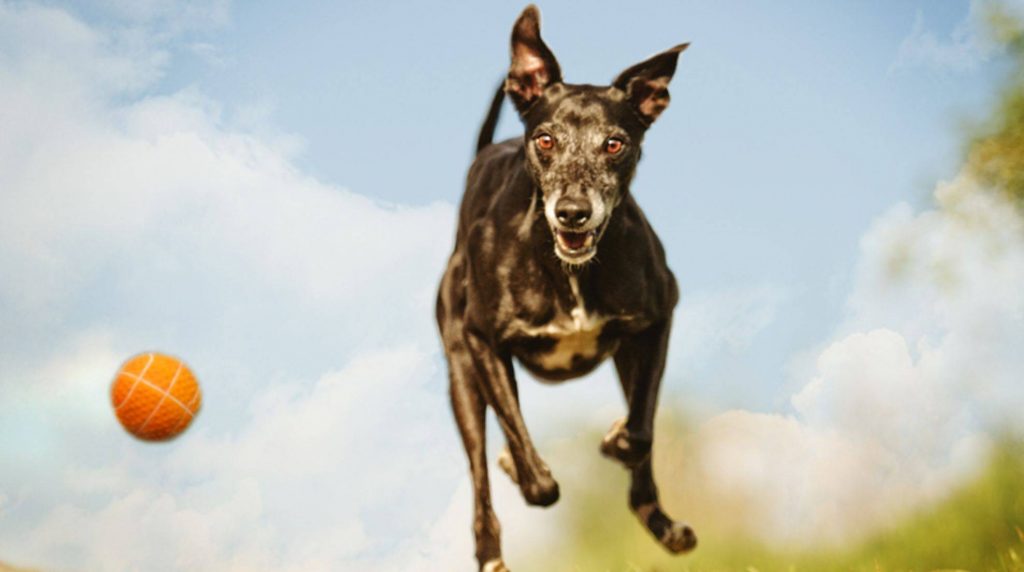For many dog owners, the thought may seem strange that their four-legged friend could develop addictive behavior while playing and become a ball junkie. Unfortunately, dogs can become addicted to the “kick” that comes from chasing after something that moves quickly – like balls. They then show symptoms very similar to those of an addicted person, are completely fixated on the object of their desire, and are constantly under pressure.

Ball games seem to be great fun for all four-legged friends, and in moderation, it is certainly not unhealthy. But if it is overdone, the dog can become a ball junkie. Addictive behavior when playing is a topic that you, as a dog owner, should not underestimate.
How does addictive behavior develop when gambling?
A ball junkie is not directly dependent on the ball itself but on certain messenger substances released in the dog’s brain when the four-legged friend is chasing after a fast-moving object. So playing ball is the actual “drug” because the fixation, rushing, and grabbing that goes with the hunt for the desired thing triggers feelings of happiness in the dog and activates its reward system.
This does not necessarily lead to addictive behavior when playing. Still, it can happen if the dog is predisposed accordingly, is not offered enough alternatives to ball hunting, and cannot recover sufficiently. For example, dogs that have not been well socialized and have grown up in a low-stimulus environment are susceptible to developing into ball junkies. Due to the lack of external stimuli, your brain does not have enough opportunity to release messenger substances such as dopamine or adrenaline, which activate the body’s reward system.
They suffer from a chronic lack of dopamine, so their reward system overreacts when playing ball suddenly releases a lot of the messenger substance. Therefore, they are particularly at risk of enjoying this form of play too much, not wanting anything else, and craving for an increase in the sense that triggers feelings of happiness – this is how addictive behavior develops.
Some dog breeds that have been bred specifically to feel fun and excitement when chasing and rushing also have a predisposition to become ball junkies. This is the case with some herding dog breeds such as Border Collies or German Shepherds and terriers such as the Jack Russell Terrier or Jagdterrier. It doesn’t have to be the breed, though – some dogs have a nervous and excitable personality, making them prone to addictive play behaviors.
How do you recognize a ball junkie?
The transition from normal, healthy gaming behavior to addiction is usually fluid. The occasional hunt for the ball does not cause addictive behavior as long as the fun is in the foreground. The four-legged friend can also get his feelings of happiness through other activities. A ball junkie, on the other hand, wants to do nothing more than chase after an object that is moving quickly. He doesn’t care who throws the ball; he’s fixated on one action – rushing – and is under tremendous stress if his addiction isn’t immediately satiated permanently.
This can have dire consequences: The human-dog friendship suffers massively from addictive behavior when playing because the animal becomes indifferent to its owner. Still, the dependency also causes physical problems for the four-legged friend. The constant stress, the constant over-excitement, and being on the alert put a strain on the dog’s soul and organism; the stereotypical movements of rushing off quickly and stopping suddenly when the ball lands also damage the joints.
In addition, addictive behaviors can transfer from playing ball to other situations where an object moves quickly away from the dog. This can put the four-legged friend in danger if, for example, he runs after cars or forgets everything around him as soon as a ball is thrown. But other animals such as cats, rabbits, or protected wild animals and playing children, joggers, and cyclists can also become victims of the dog’s out-of-control hunting behavior. Affected four-legged friends cannot distinguish between play and seriousness and can no longer control themselves.
If your dog shows the following symptoms when you play with him, he is either already a ball junkie or on the way to becoming one:
● As soon as he sees his toy, he goes nuts and can’t control himself
● If he knows you have the ball in your pocket, he won’t stop until you get the toy out. He will yelp, squeak, bark, jump up on you, drool, or show other signs of distress
● He generally doesn’t come to rest and looks for himself when his ball is not within reach









